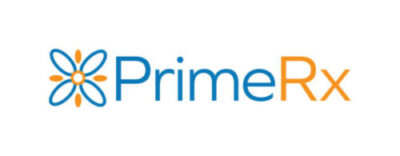PrimeRx Blog
Travel Medicine Checklist for Summer Travel Top Picks from Your Local Pharmacy Explore PrimeRx Schedule A Demo Introduction Warm weather can mean
With Pharmaceutical Tariffs on the Horizon, Pharmacies Need to Prepare! Explore PrimeRx MARKET Join PrimeRx MARKET for FREE Introduction Pharmacy-based organizations were
The Dramatic Rise of GLP-1s: What Independent Pharmacies Need to Know Explore PrimeRx MARKET Join PrimeRx MARKET for FREE Introduction As the
May is Mental Health Awareness Month – How Pharmacies Promote Patient Well-Being Explore PrimeRx Schedule A Demo Introduction Although May is officially
Managing Your Pharmacy in the Digital Age – Tips for Securing Data Explore PrimeRx CLOUD Schedule A Demo Introduction Last year more
PrimeRx Helps Manage Patient Medication Costs – which Reduces Prescription Abandonment Explore PrimeRx Schedule A Demo Introduction A funny thing happened when
OTC Products Offer Pharmacies a Revenue Bright Spot – PrimeRx, PrimeRx POS, and PrimeRx MARKET Can Help Explore PrimeRx MARKET Register for
Stay Ahead of Allergy Season Chaos: Keep Patients Informed and Healthy with PrimeRx Explore PrimeRx Schedule A Demo Introduction Spring is in
Your Trusted Path to Hard-to-Find Drugs — PrimeRx MARKET Explore PrimeRx MARKET Register for FREE Introduction When NBC’s Today Show ran a
From Behind the Counter to the Bottom Line How Having the Best Pharmacy Software Can Reshape Independent Pharmacies Explore PrimeRx Schedule A
Happy International Women’s Day! Pharmacies have an Essential Role in Supporting Women’s Health Explore PrimeRx Schedule A Demo Introduction A report last
Pharmacists can Find Top Prescription Medications at a Discount Explore PrimeRx MARKET Register for Free Introduction The Importance of Price Shopping in
How PrimeRx Simplifies Medicare Prescription Payment Plan for the Modern Pharmacy Explore PrimeRx Schedule A Demo Introduction PrimeRx Simplifies M3P Compliance for
Losing the Reimbursement Battle? Win the War with a Smarter Pharmacy Purchasing Strategy Discover PrimeRx MARKET Time-Limited Holiday Promotion “A missed opportunity,”
Trends for 2025 — Pharmacy Services take a Holistic Approach to Patient Well-Being Schedule A Demo Good things are happening in the
















